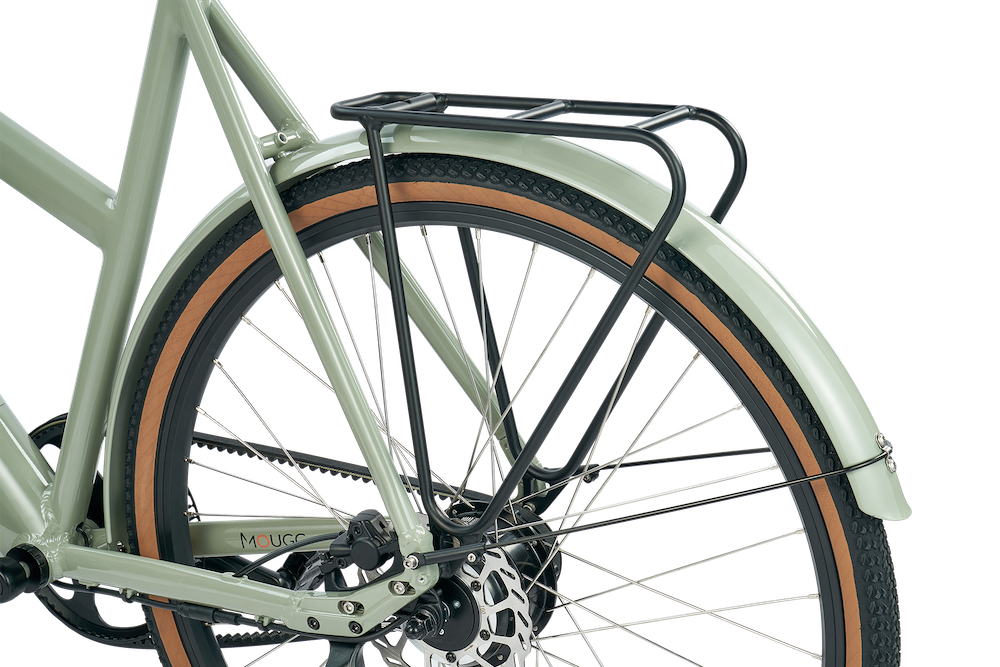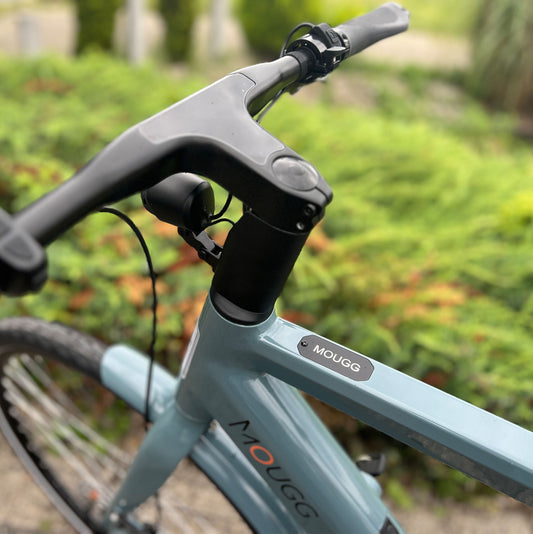
hydraulische Bremsen
Share
Mehr zum Thema hydraulische Scheibenbremse
Wie funktioniert die hydraulische Bremse? Was ist eine hydraulische Bremse? Was ist der Vorteil von Scheibenbremsen? Was ist bei Scheibenbremsen zu beachten?
Wie funktioniert eine Scheibenbremse?
Eine Scheibenbremse besteht aus dem Bremshebel, der Bremsleitung, dem Bremssattel, den Bremsbelägen und den Bremsscheiben.
Wenn du den Bremshebel am Lenker betätigst, wird die Handkraft über die Bremsleitung auf den Bremssattel übertragen. Dort werden die Bremsbeläge gegen die sich drehenden Bremsscheiben gedrückt. Abhängig von der Handkraft, die auf den Bremshebel ausgeübt wird, verändert sich die Bremswirkung.
Was ist der Vorteil von Scheibenbremsen?
Scheibenbremsen verfügen gegenüber anderen Bremsen über einige Vorteile.
-
Scheibenbremsen haben bei Nässe eine größere Bremsleistung.
-
Für das Bedienen einer Scheibenbremse am Fahrrad ist im Vergleich zu den anderen üblichen Bremssystemen 20 % weniger Handkraft notwendig.
-
Deine Felgen verschleißen nicht. Auch das Überhitzen der Felgen bei einer Talfahrt ist bei Scheibenbremsen keine Gefahr.
-
Scheibenbremsen zeichnen sich durch eine lange Haltbarkeit aus.
-
Scheibenbremsen sind wartungsarm
-
Scheibenbremsen stellen sich selber nach (hydraulische Scheibenbremsen)
Was ist bei Scheibenbremsen zu beachten?
Damit du mit deinen Scheibenbremsen sicher unterwegs bist, solltest du folgende Dinge beachten:
1. Bremsen üben: Da bei einer Scheibenbremse weniger Handkraft nötig ist, sollte das Bremsen vorsichtig erfolgen und die Vollbremsung ein wenig geübt werden.
2. Einbremsen: Neue Scheibenbremsen musst du zunächst einbremsen. Gehe dafür wie folgt vor: Beschleunige dein Fahrrad bis zu einer mittleren Geschwindigkeit auf einem flachen, sicheren Untergrund. Betätige nun vorsichtig einen deiner beiden Bremshebel, bis du etwa bis zu Schrittgeschwindigkeit herabgebremst hast. Mache das gleiche nun mit dem anderen Bremshebel. Dies wiederholst du mindestens 20 Mal, wobei sich die Bremskraft nach und nach erhöht.
3. Kontrolle & Pflege: Du solltest das Bremssystem regelmäßig kontrollieren. Tritt Öl aus? Dann solltest du deinen Fahrradhändler aufsuchen. Prüfe außerdem den Bremspunkt. Kannst du deinen Hebel bis zum Lenker ziehen oder fühlt sich das Bremsen „schwammig“ an? Dann ist wahrscheinlich eine Entlüftung deiner Scheibenbremse notwendig. Schaue hierzu in deine Bedienungsanleitung oder frage deinen Fahrradhändler um Rat.
Darüber hinaus ist die richtige Pflege für die Haltbarkeit der Bremse wichtig.





